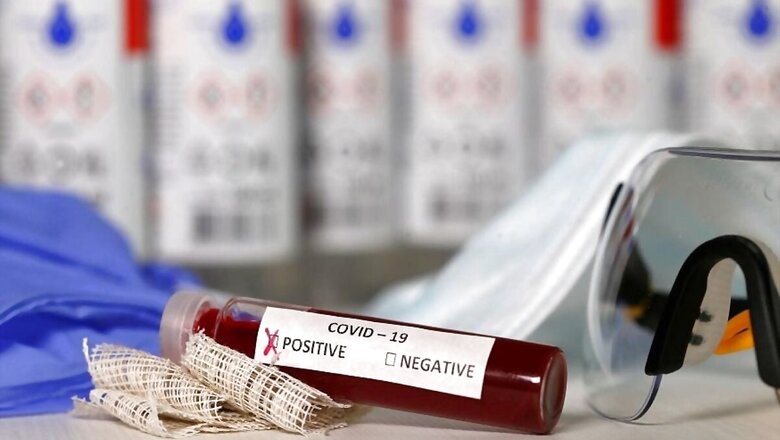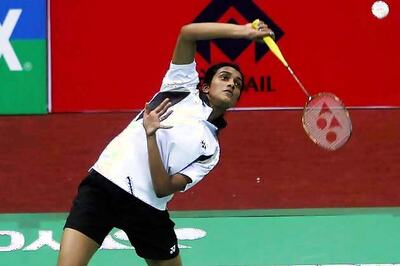
views
With a steady decline in the number of active Covid-19 cases in Delhi, the containment zones have come down to 496 from 715 following a review, providing relief to thousands of people living in these restricted areas, while a second sero-prevalence survey kick-started on Saturday in the national capital. The city reported 1,118 fresh coronavirus cases, taking the tally to 1,36,716. The active cases stand at 10,596. With 26 fresh fatalities, the death toll stands at 3,989. The recovery rate is over 89 per cent.
While more restrictions are being eased under Unlock 3, a fresh tussle is on between the AAP government and the lieutenant governor, this time on whether hotels and weekly bazaars should be reopened. A day after LG Anil Baijal rejected the AAP government's decision to allow hotels and weekly bazaars to resume business, Deputy Chief Minister Manish Sisodia wrote to Union Home Minister Amit Shah seeking directions to the LG to reverse his order.
In his letter to Shah, Sisodia said the Delhi government will again send its proposal on reopening of hotels and weekly markets to the lieutenant governor on Tuesday. Sisodia accused the Centre of adopting a "dual policy" towards Delhi where Covid-19 situation has been "quite under control" in past one month and "is gradually headed to become normal".
"At such a time when hotels and weekly markets are open in the whole country, even in states like UP, Karnataka etc where highest number of cases have been reported hotels, it is beyond comprehension as to what the Centre wishes to achieve by keeping hotels and weekly markets shut in Delhi," he wrote. "I request you to ask the LG not to stop the proposal. If traders start their business, jobs will be generated, and that the condition of the economy will improve," Sisodia, who also holds the finance portfolio, said.
The AAP government has been advocating further easing of restrictions to revive economic activities. After a two-day review, the number of containment zones has been brought down to 496, which affects the movement of 1,06,211 people, according to Delhi Revenue Minister Kailash Gahlot.
Earlier, there were 715 containment zones affecting 3,48,099 people, he said. In a containment zone, all entry and exit points are completely barricaded to prevent any movement of residents. Police are deployed to keep a watch on it, while necessary supplies are provided to people in such zones at their doorstep.
The review to decrease the number of containment zones by Delhi government comes close on the heels of a Health ministry office memorandum earlier this week, allowing all states and Union territories to de-notify a containment zone 14 days after discharge of the last confirmed case which was 28 days earlier, officials said. "As desired by Honble CM @ArvindKejriwal all the containment zones in Delhi were extensively reviewed in the last 2 days with each District DM and surveillance Team," Gahlot said in a tweet.
In Delhi, a locality is declared a containment zone by district authorities if three or more persons test positive to Covid-19. In a review of Covid-19 situation in Delhi, on June 29, Chief Minister Arvind Kejriwal had expressed concern over the large size of containment zones in Delhi as it restricted movement of a large population, Gahlot said. "During the last two days an extensive review of containment zones was carried out with Revenue and Health officials. The result has been quite satisfactory. Against 715 containment zones affecting 3,48,099 people, number of containment zones is now down to 496 which affect the movement of 1,06,211 people," the minister said in the statement.
The Delhi government had been demanding change in containment zone norms as some zones in the city were under complete lockdown for 3-4 months forcing their residents to stay indoors, a senior government officer said. There are now 39 zones in central district, 50 in East, 39 in New Delhi, 59 in North, 24 in North East, 28 in North West, 7 in Shahdara, 50 in South, 30 in South East, 109 in South West, and 61 in West.
Meanwhile, a five-day sero-survey, aimed at covering all districts and various demographic segments, began in the national capital on Saturday. An earlier survey from June 27 to July 10 showed 24 per cent of Delhi residents have developed antibodies.
"This will aid the govt to tailor its strategy to changing circumstances," the chief minister's office tweeted. Samples for the sero-survey were collected from four districts, including North Delhi and Northwest Delhi.
A sero-prevalence survey involves testing the blood serum of individuals to check for the prevalence of antibodies against infection. A senior government official said 15,000 samples would be collected from August 1 to 5 as part of the exercise, spanning different areas and age groups. Representative samples will be taken from all the 11 districts.
The last sero-prevalence survey was conducted by the Delhi government in association with the National Centre for Disease Control (NCDC). The fresh round would follow the same protocol as that was for the last survey, officials said.


















Comments
0 comment